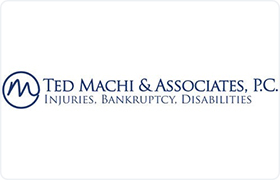Richardson Reorganization Lawyer, Texas
Sponsored Law Firm
-
 x
x

Click For More Info:
-
Machi & Associates, P.C.
1521 North Cooper Street Suite 550 Arlington, TX 76011» view mapAccident & Injury, Bankruptcy, Social Secuirty We Fight So You Don't Have To
Our professional team of attorneys and staff provide the experience and expertise needed to effectively handle your case.
800-804-0771
Angela Lemaire Robertson
Government, Freedom of Information, Non-profit, Reorganization
Status: In Good Standing Licensed: 20 Years
Christina Whittinghill Masso
Complex Litigation, Health Care Other, Contract, Reorganization
Status: In Good Standing Licensed: 21 Years
Courtney Jane Hull
Litigation, Merger & Acquisition, Reorganization, Credit & Debt
Status: In Good Standing Licensed: 16 Years
David Henry Herrold
Litigation, Corporate, Business Organization, Reorganization
Status: In Good Standing
Ellen Dale Willmott
Litigation, Communication & Media Law, Reorganization
Status: In Good Standing Licensed: 34 Years
James G. Vetter
Business Organization, Estate Planning, Securities, Reorganization
Status: In Good Standing
Jonathan Robert Patton
Real Estate, Litigation, Reorganization, Bankruptcy
Status: In Good Standing Licensed: 13 Years
Kelly April Latta
Employee Rights, White Collar Crime, Insurance, Reorganization, International Tax
Status: In Good Standing Licensed: 12 Years
 Ted Machi Arlington, TX
Ted Machi Arlington, TX Practice AreasExpertise
Practice AreasExpertise
